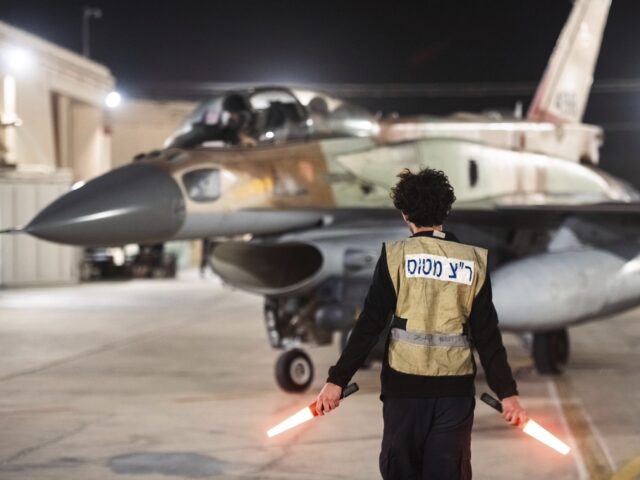Israel Air Force Wins Freedom of Operation Above Tehran

The Israeli Air Force (IAF) has won complete freedom of operation above Tehran, the Iranian capital, after 36 hours of conflict, the Israel Defense Forces (IDF) said on Saturday.
The announcement came after Iran said that it had downed at least one IAF fighter jet, which IDF Spokesman Brigadier General Effie Defrin said was untrue.
Israel has eliminated most of Iran’s air defenses, and is currently targeting ballistic missile launchers.
The fact that the IAF can reach Iran at all is a major achievement. Until the current war, it was presumed that the distance between Israel and Iran was too far, and the nations in between too hostile, to allow Israel to fly over them, land in them, or refuel above them. However, the Abraham Accords have created alliances — both explicit and implicit — between Israel and Sunni Arab states, and the collapse of the Syrian regime earlier this year means that Israel can fly freely on the shortest path to Iran without fear of encountering hostile fire.
Iran appears to have underestimated Israel’s will and ability to attack on its own — a fateful miscalculation.
In response, Iran has launched hundreds of ballistic missiles at Israel in several waves since Friday evening. Most were intercepted by Israel’s air defenses or allowed to fall in open areas where they were not a threat to human life or to infrastructure. Several missiles made it through Israel’s defense shield — which the IDF has cautioned is not “hermetic” — and hit residential neighborhoods, mostly in central Israel, near Tel Aviv.
Three Israelis — all civilians — have been reported killed. Two have been identified; both are elderly people. Some 80 civilians were also injured in missile strikes. Most of the injuries were light, but a few were serious.
Iran has not hit any significant Israeli military assets and is firing broadly toward heavily populated civilian areas. There were reports that Iranian missiles had hit Israel’s military headquarters, the Kirya, in Tel Aviv, but the building itself was not hit. Trey Yingst of Fox News reported that a building on the “compound” of the Kirya was hit, as was a building across the street. Following that report, the IDF repeated requests to the public not to broadcast the locations of Iranian missile strikes, so as not to improve Iran’s targeting ability.
Israelis were told to expect some Iranian strikes over the next two weeks, at least, as the price of the war.
There is an asymmetry in the attacks on either side: Israel’s manned aircraft are flying to Iran and targeting military and state assets, while Iran is launching poorly-guided missiles from afar at civilian areas in Israel.
Israel has warned that Iran will pay a heavy price for attacks on civilians. The international community, thus far, has not condemned Iran for doing so, but has either criticized Israel or called for restraint on both sides.
This is a war many Israelis have anticipated for decades, as Iran made clear that it wanted to destroy Israel, and as it armed terrorist proxies, and as it enriched uranium, for that purpose.
For many years, and from one U.S. administration to another the question was whether America would support or join Israel in that fight, given that Iran and its proxies have also attacked Americans, and that a nuclear Iran is a threat to the world.
For now, a pattern has developed in which Israel does the fighting, with American weapons and logistical support, while the U.S. stays on the sidelines, urging Iran to accept a deal that would end its nuclear program.
Left unsaid is the prospect that the U.S. could enter the war if the Iranian military attacks U.S. bases or ships. Neither Israel nor the U.S. want that outcome. For Iran, attacking the U.S. would be a risky gamble on the strength of the domestic anti-war movement, left and right.
From Israel’s perspective, only a strong deal can truly end Iran’s nuclear program. Israel needs American diplomacy more than it needs the American military.
Joel B. Pollak is Senior Editor-at-Large at Breitbart News and the host of Breitbart News Sunday on Sirius XM Patriot on Sunday evenings from 7 p.m. to 10 p.m. ET (4 p.m. to 7 p.m. PT). He is the author of Trump 2.0: The Most Dramatic ‘First 100 Days’ in Presidential History, available for Amazon Kindle. He is also the author of The Trumpian Virtues: The Lessons and Legacy of Donald Trump’s Presidency, now available on Audible. He is a winner of the 2018 Robert Novak Journalism Alumni Fellowship. Follow him on Twitter at @joelpollak.